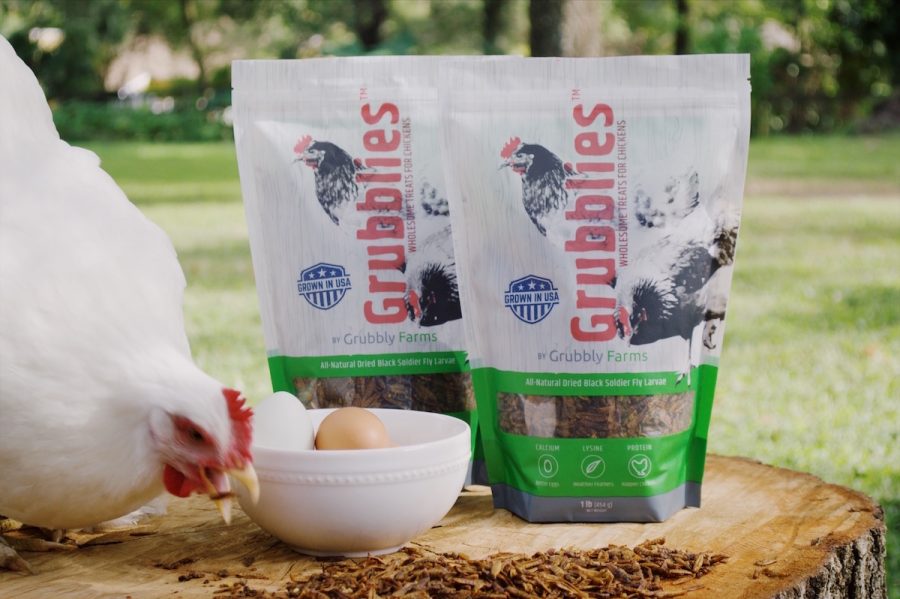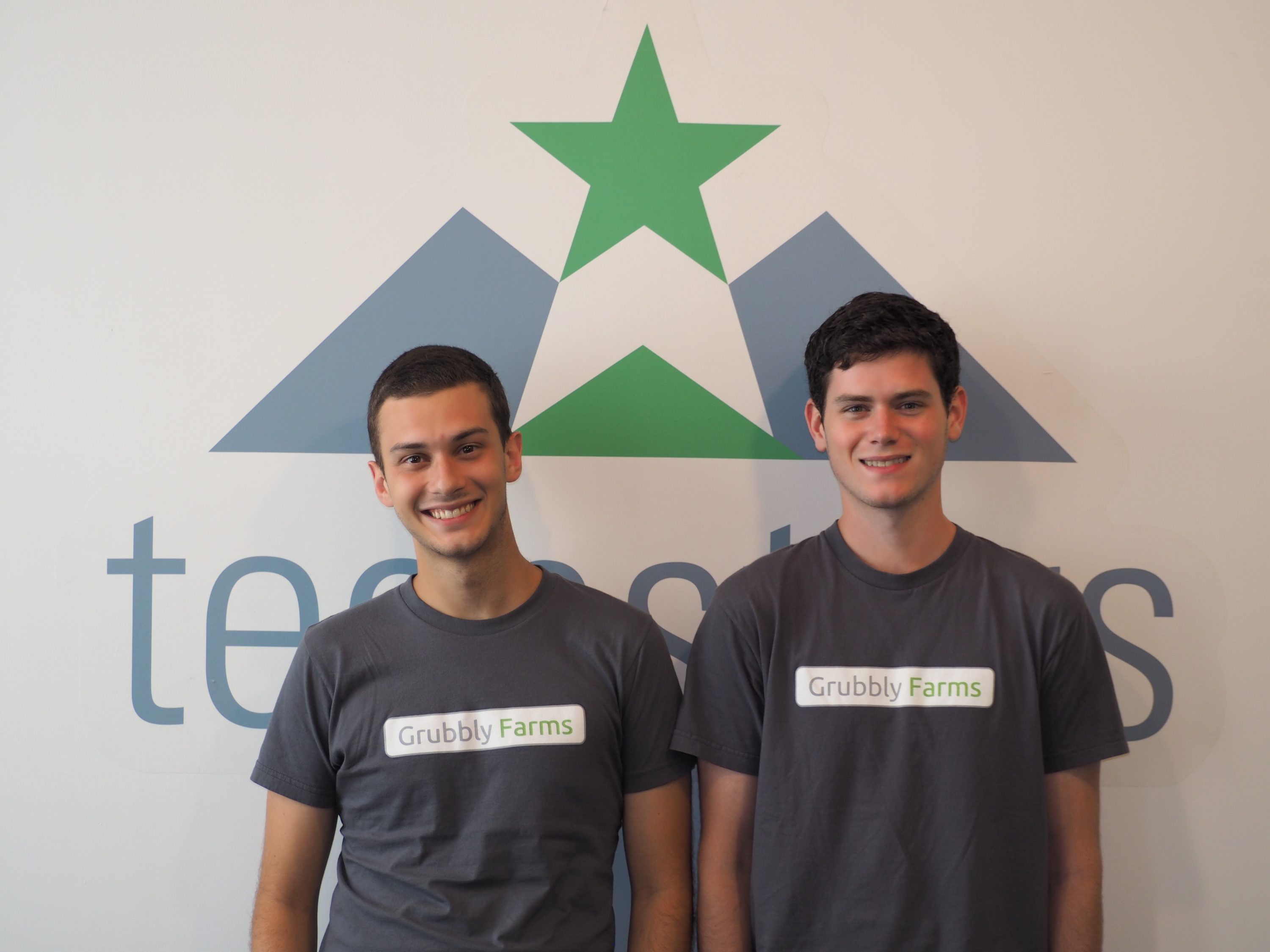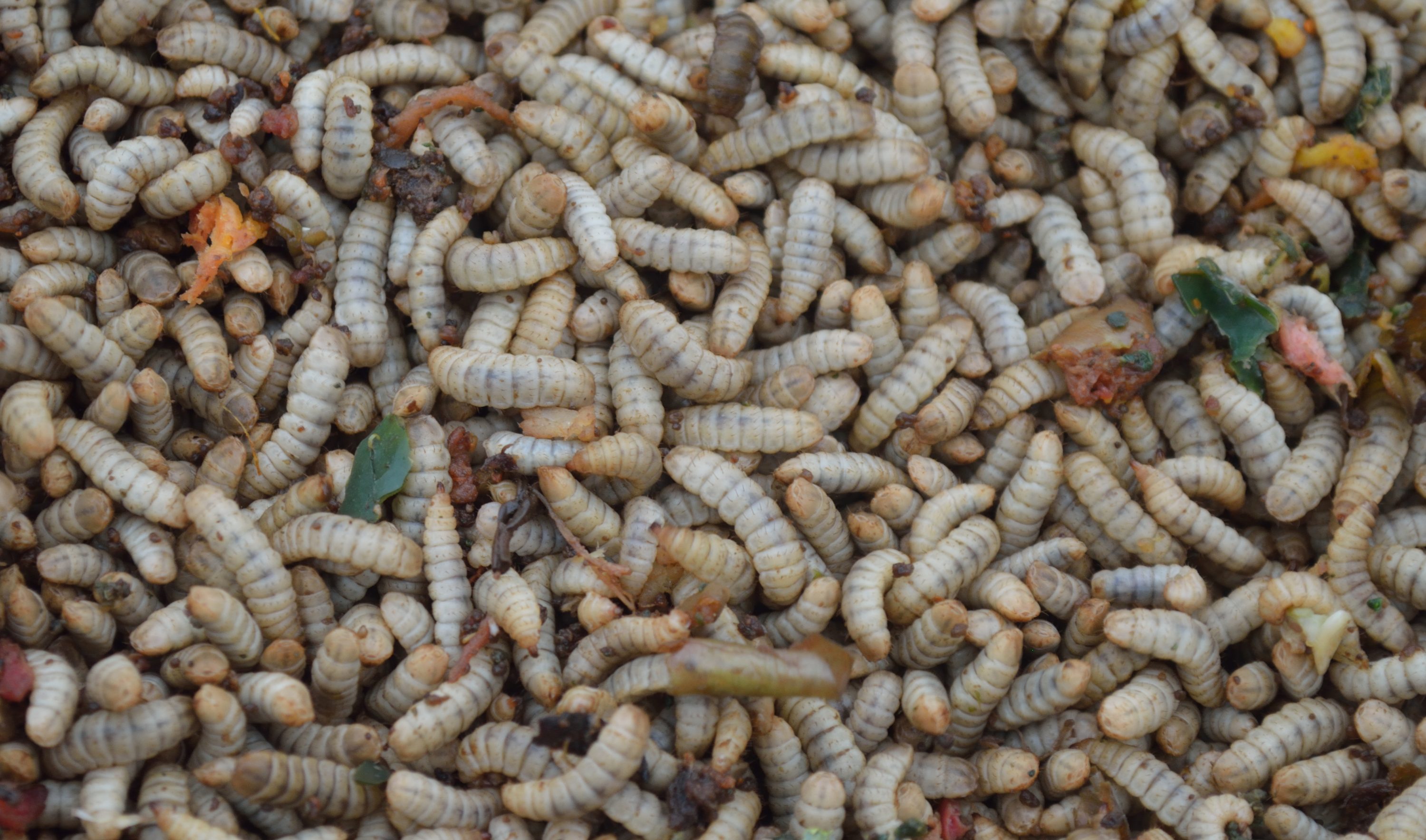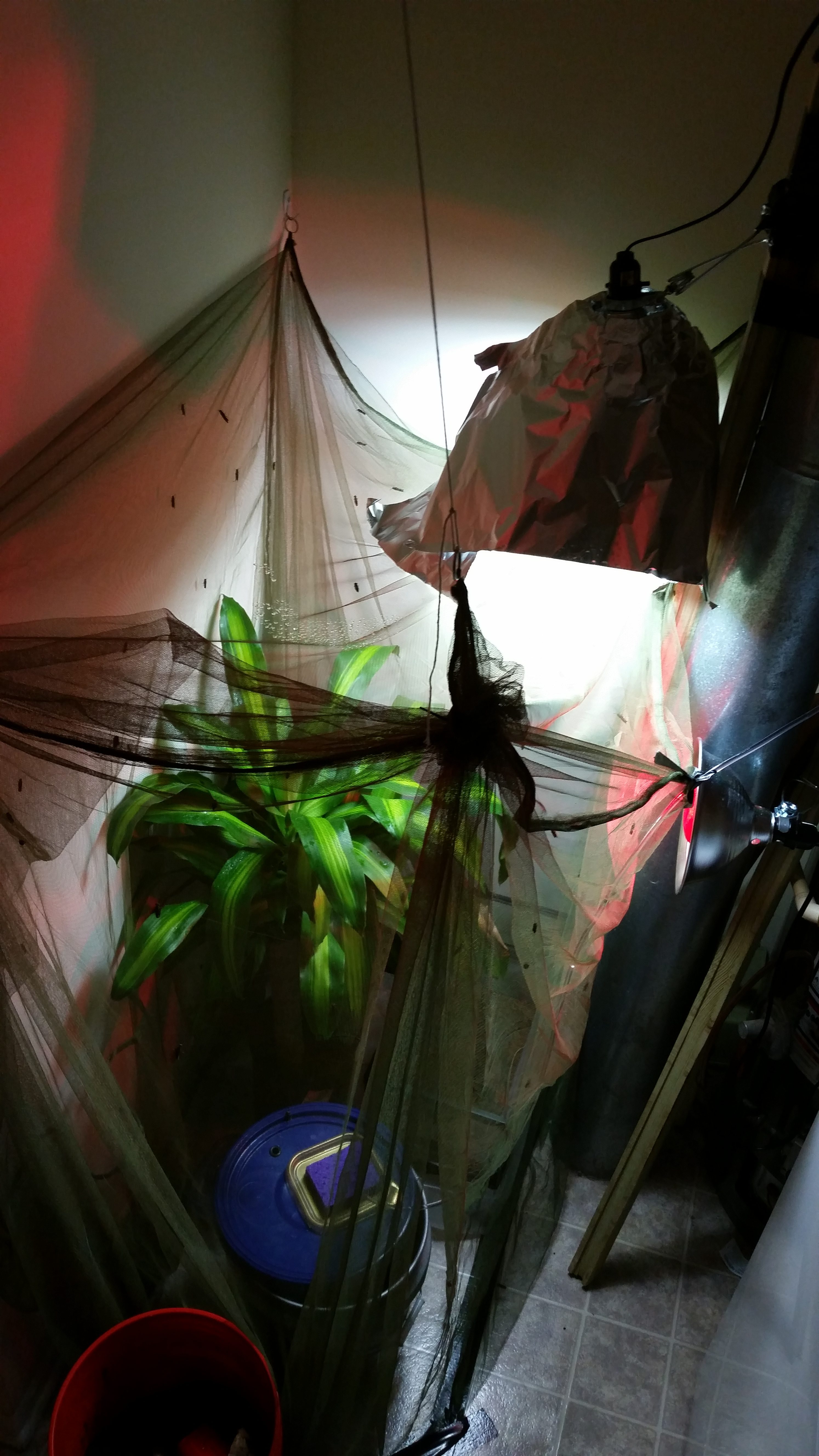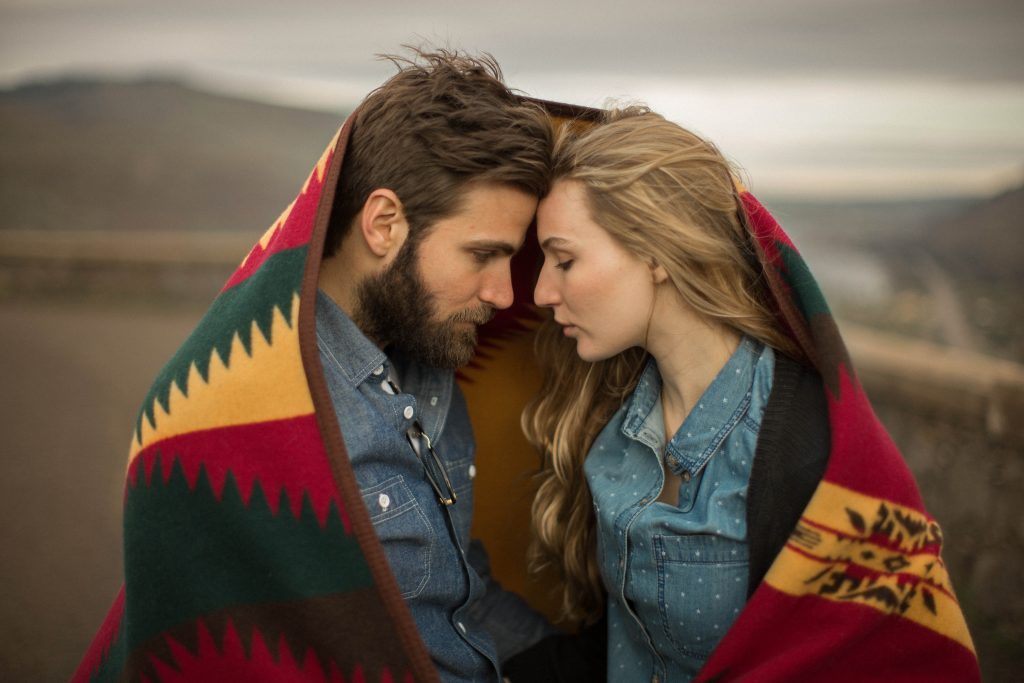While most farmers do what they can to keep insects away, relying on insecticide to protect their crops, Sean Warner and Patrick Pittaluga, founders of Grubbly Farms, welcome them as a means to effective alternative fertilizer and feed. We got the chance to talk to Patrick Pittalaga and get an insight into Grubbly Farms.
 IN THE PHOTO: THE GRUBBLY FOUNDER PATRICK PITTALUGA & SEAN WARNER PHOTO CREDIT: PATRICK PITTALUGA (via GRUBBLY FARMS)
IN THE PHOTO: THE GRUBBLY FOUNDER PATRICK PITTALUGA & SEAN WARNER PHOTO CREDIT: PATRICK PITTALUGA (via GRUBBLY FARMS)
You both work with insect animal feed. Can you tell us a little bit about what that entails?
Patrick Pittaluga: Absolutely, so we are raising Black Soldier Fly larvae as a source of sustainable protein for animal feed. Their diet consists of food waste from organizations around the Atlanta area who are looking to recycle their waste. Over 15 days, the larva eats through the food waste and converts it into a high-quality fertilizer. This can be used to replace chemical-based fertilizers used by most farmers. From what we’ve read, the fertilizer has a specific anti-fungal property allowing crops that require high moisture soil like peppers to grow.
The larvae are also separated from the fertilizer and harvested. Today, we are selling them as treats for the backyard pet chicken market, however, our end goal is to be in the position where we can mill the whole larva, separate their protein and fat components, and manufacture different animal feeds. By doing so, we could work to make larva culture feed outproduce the usual feed used by the meat production industry.
Currently, we are selling them as a treat, a supplementary product, for pet chickens. In the US, we have 3 million people who have chickens as pets. Just like dog and cat owners, they buy them toys, treats, clothes, pet leashes and harnesses. We’re offering a US-grown, high quality treat that can assist with egg production, and one thing these backyard owners really enjoy is eating their home-produced eggs!
You have so many insects to choose from, why did you choose the Black Soldier Fly and how did you come across it?
P.P.: In the beginning, Sean brought up an article stating how everyone in the world could be eating insects in 20 years. Insects have a high feed conversion ratio, low impact, and low water usage which makes them a better food alternative. Initially, we thought to create a burger patty out of insects and sell it, however, we realised that western culture might not be ready for that. Soon after, we started doing research into edible insects online and what we could do with them. We could see the global impact they could have, and became really captivated by their potential for sustainability.
As for the soldier flies, we are attracted to their ability to eat through any waste. Leaves or branches, even human and animal waste. The fly itself doesn’t eat as an adult, it just mates and lays eggs, so the larvae has to eat and hold onto all the nutrients that the fly is going to need. Because of this, they are really nutrient-dense which makes them an excellent source of nutrients for animal feed.
 IN THE PHOTO: BLACK SOLDIER FLY LARVAE . PHOTO CREDIT: PATRICK PITTALUGA (via GRUBBLY FARMS)
IN THE PHOTO: BLACK SOLDIER FLY LARVAE . PHOTO CREDIT: PATRICK PITTALUGA (via GRUBBLY FARMS)
It is impressive that you can breed so many flies, how much space do you need for this?
P.P.: Space is always an issue. We are constantly running out of space. Actually, we are about to move into our first small-scale production facility. It is about 18,000 square feet and will utilize technology and equipment from partners that we have made throughout the business. Ultimately, this will allow us to recycle about 20 tons of food waste a day which would have an output of 3000 pounds of dried insects daily.
It seems like your product is becoming more popular and accepted. That leads me to my next question, have you tried your own product?
P.P.: Most definitely! We have had more than our fair share of insects. For me, I have only eaten the dried grubs. Sean is a little more brave than I am, he has actually tried eating the live grubs, but I’m gonna get there. Even our employees have tried these grubs at least once. Honestly, they are not as bad as you would think.
It tastes kind of like an earthy peanut sunflower seed. It really is the mental block that you’re eating an insect or an exoskeleton that stops most people.
You and Sean seem to be working well together. What makes your partnership great?
P.P.: Sean and I are actually cousins. We grew up about a mile away from each other. Sean has lived just outside of Atlanta his entire life. I was born in South Florida but moved to Atlanta about twenty years ago. We lived next to each other and both went to Georgia Tech. We have been best friends for the majority of our life. I think it is because we complement each other’s skill sets. I went to school for business and Sean went to school for construction. Sean is the CEO and I’m COO. So I focus on the day to day operations while Sean focuses on larger scale partnerships, fundraising and other CEO duties. We balance each other out between optimism, realism and pessimism and are always ready to have each other’s backs. We make sure neither one of us misses anything and we push each other to be more and to do more.
You know, it is kind of funny how neither of you has a science major, yet both of you somehow ended up in this field. Would you have ever thought that you will be where you are right now?
P.P.: Absolutely not. We laugh about that on a weekly basis. I’ve always had a knack for entrepreneurship and I definitely wanted to go down this path like most entrepreneurs today. Sean didn’t even consider entrepreneurship until his last semester in school. But really, we both just saw this huge opportunity to have a great impact. We just started pouring over research articles and reading anything we could find online. We actually started raising these Soldier Flies in the laundry room of our apartment. We didn’t even know what exactly we were going to do with them, we just thought ‘screw it, let’s try growing these things in a little cage in our laundry room,’ we bought 700 little larva from amazon and that is where it all began.
IN THE PHOTO: BREEDING LARVAE PHOTO CREDIT: PATRICK PITTALUGA (via GRUBBLY FARMS)
SEE RELATED ARTICLES: FUTURE OF FOOD: REDUCING WASTE by Vytenis Andriukaitis
MISHERGAS: CONVERTING WASTE INTO ENERGY by Alessandro Du Besse’
SDG 15: PLANTING NEW ROOTS FOR A FERTILE PLANET by Tiina Vahanen


